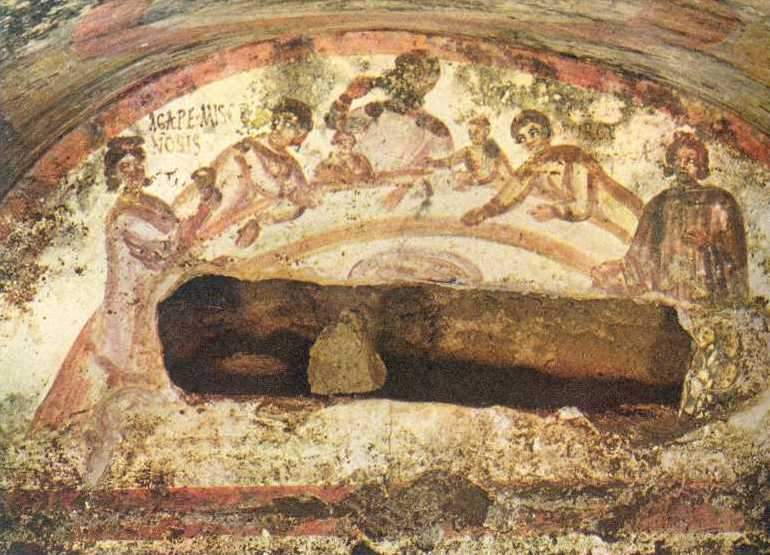Pastor 1: We need to be more like the early church!
Pastor 2: The early church had lots of problems—just look at Corinth. We shouldn’t idealize the early church!

To Be or Not to Be…Like the Early Church?
This debate has been around for a long time. Should we, or should we not, emulate and idealize the early church? Of course, we see in the NT that Paul wrote lots of letters to churches (of all shapes, sizes, and regions) because they had problems. Sometimes big problems. They were far from perfect. On the other hand, the NT narrates the very birth of the Church. So, if we want to see some of its elements in their purest forms, it seems wise to go ad fontes, back to those sources. Here is how I respond to this question in brief.
Should we try to emulate the early church?
I think we need to have four thoughts in mind at once:
1) YES: We Need Church Culture Shock
Reading the NT takes us into a different era, a different age, and a different culture. When we engage in cross-cultural learning, by observing how they worship, live, and commune together, it can give us the right kind of “culture shock.” A dominant value in the ancient Mediterranean world was hospitality, for example. They saw this as more than hot coffee and donuts. It was about welcoming the outsider as family. Observing their ways and values can challenge us in important ways.
2) YES: We Need To Balance All the Basics
The early churches were not perfect, of course, but the ones addressed in the NT received instruction from apostles like Paul and Peter. Surely these apostles clearly communicated the fundamentals or the basics of how the Church should live. Today, we could easily get these basics off balance, so attending to the life of these early churches (broadly and with some scrutiny) can be a healthy exercise. Luke tells us the early church was committed to the apostles’ teachings, to fellowship, the breaking of bread, and “the prayers” (a common worship liturgy of prayer) (Acts 2:42). This is just one example of how the early church saw its basic values and functions; looking at how churches then devoted themselves to these things can be very instructive.
3) NO: We Might Mimic to Our Peril
One of the dangers of trying to “be like” the early church is adopting the assumption we have to mimic their cultural preferences or styles (or, worse, their flaws!). Some churches today think they are being orthodox because they don’t use musical instruments (supposedly like the early church, but the evidence is not uniform). We need to discern which elements and practices of early churches were absolute and universal (e.g., baptism) and which were not. Thoughtless imitation is not faithfulness to Scripture.
4) NO: We Need to Honor the God Who Works In All Times
There is a danger in glorifying “the good ole’ days.” We can mistakenly imagine that our best years of the Church are behind us. That does not honor the God who is at work in all places at all times. There is an equal problem of “future progress” where we assume the newest generation has it most right. That’s definitely hard to justify! God forms his Church and can strengthen whenever and wherever he pleases.
Resources
Here are some books that helped me wrap my brain around the early churches and what we can learn from them today
Wayne Meeks, The First Urban Christians
Dietrich Bonhoeffer, Life Together: The Classic Exploration of Christian Community
Paul Minear, Images of the Church in the New Testament
Richard Longenecker, ed. Community Formation in the Early Church and In the Church Today












